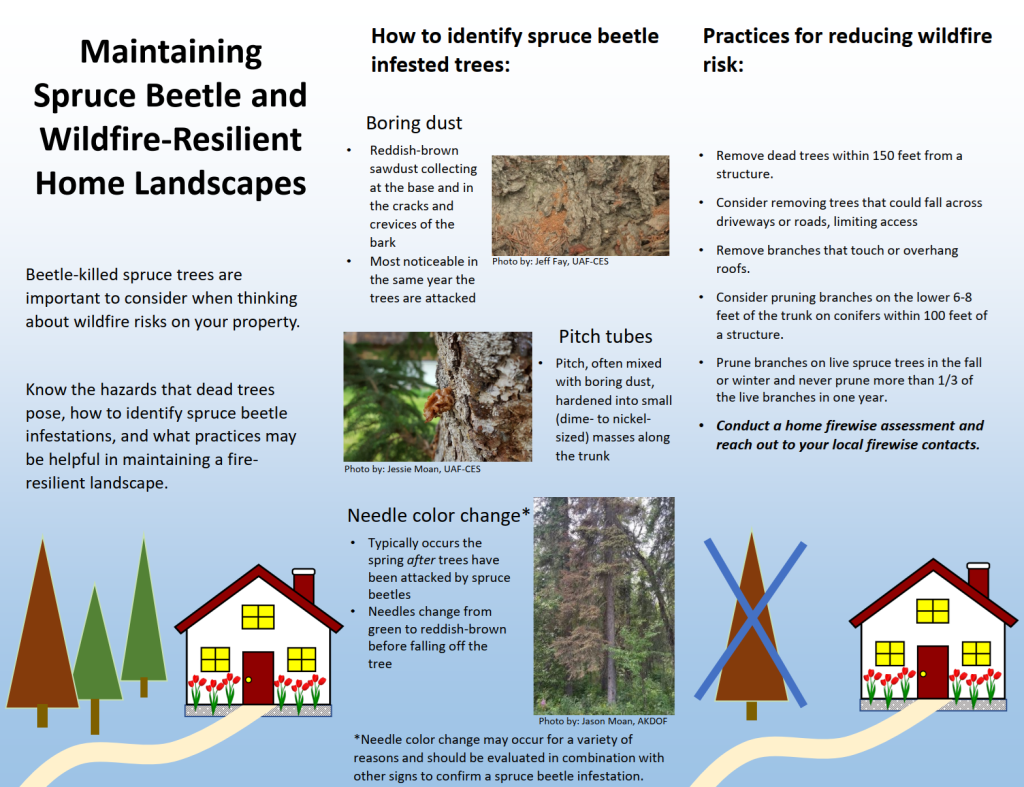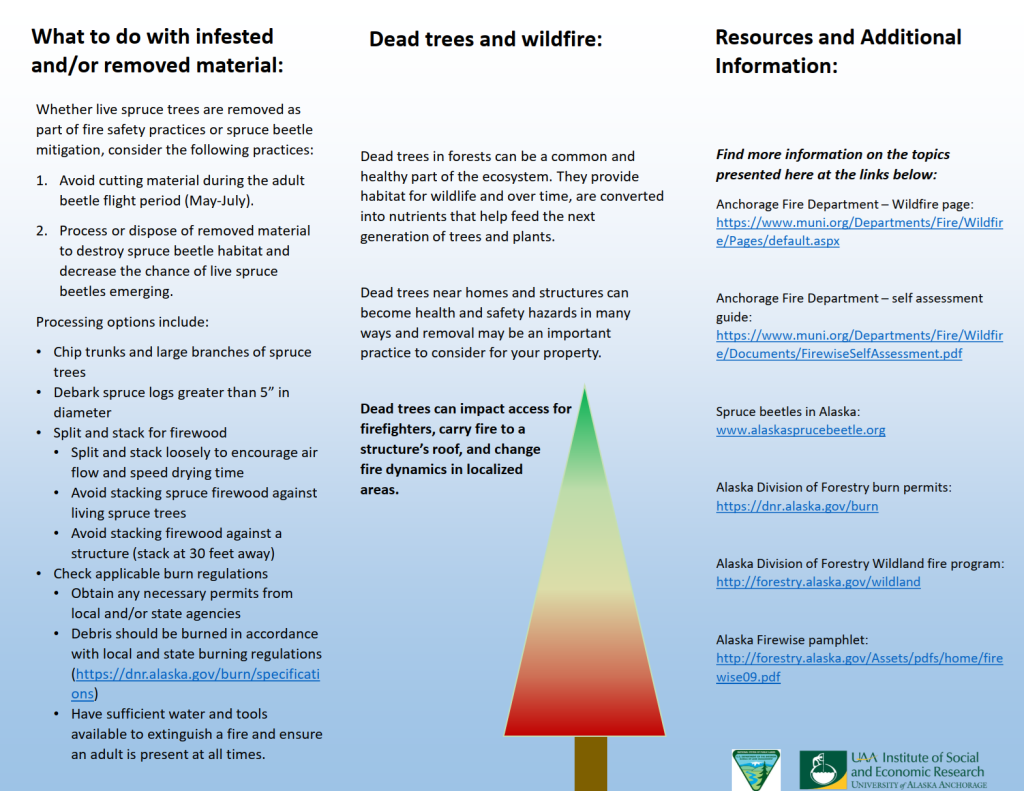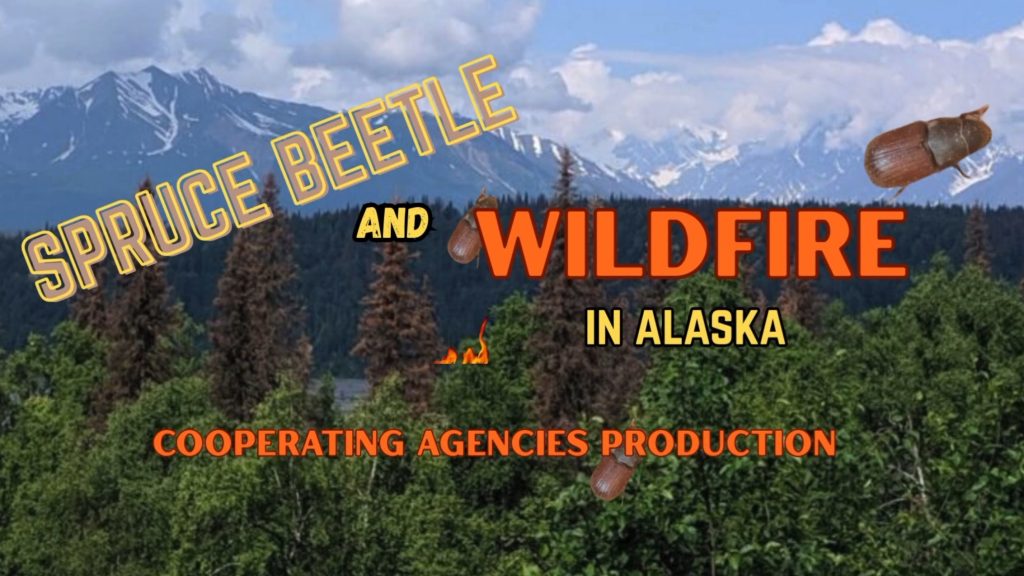The current round of spruce beetle outbreak in Southcentral Alaska was first detected in 2016, peaked around 2020, and has since been in decline. Statewide damage from spruce beetle activity peaked in 2018, and 2024 marked the lowest damage detected (~35,000 acres) since 2015. Not only have we observed declines in acres damaged by spruce beetles (Figure 1), but trapping efforts to monitor population levels at specific sites have also experienced declines in beetle catches. Since 2022, the majority of active spruce beetle damage has been occurring at the northern and southern extents of the outbreak area, including northern portions of Matanuska Susitna Borough and southern portions of the Denali Borough, and areas of the central and western Kenai Peninsula. Small pockets of activity continue to be observed, but the relative severity of damage is less than during the outbreak’s peak. Full descriptions of year-to-year spruce beetle activity can be found in the Forest Health Conditions in Alaska reports available at: https://www.fs.usda.gov/detailfull/r10/forest-grasslandhealth/?cid=fsbdev2_038884.
References: UAF, DOF, & USFS. (2025). Outbreak Status. Retrieved from https://www.alaskasprucebeetle.org/outbreak-status/
As part of this project, we have worked with the Municipality of Anchorage to produce a video on spruce beetles and wildfire hazards in Alaska. The purpose of this video is to help residents identify beetle activity, take actions to reduce infestation, and learn when beetle killed trees pose a wildfire risk. Click the link here to watch: https://youtu.be/FoEj84NAkgE
We have created a flier to help residents protect their trees from infestation by spruce bark beetles, identify when they have been infected, and actions to take to reduce hazards and risks. Here is one flier for printing and another for posting or displaying on websites.


This project was funded by AK CESU Multi-Purpose Fuel Breaks and Outreach to Promote Fire Resilient Communities (L20AC00254) and Joint Base Elmendorf-Richardson (JBER).
